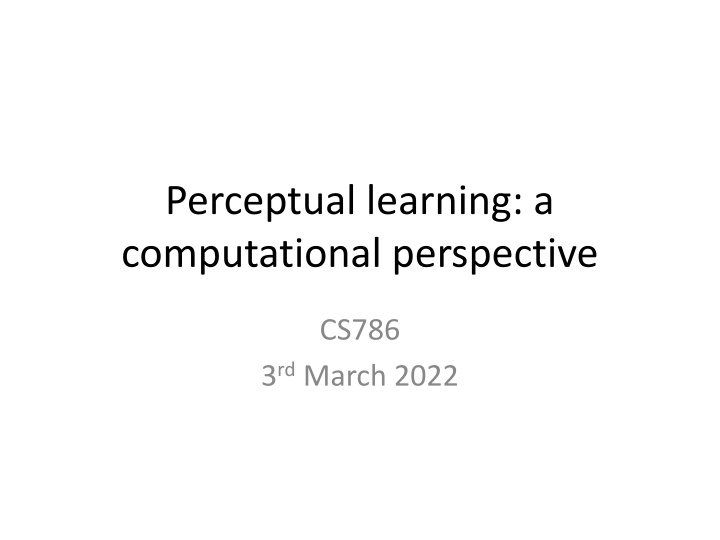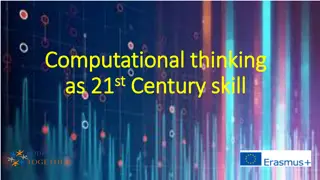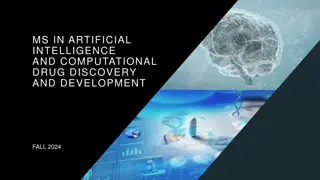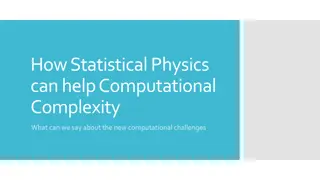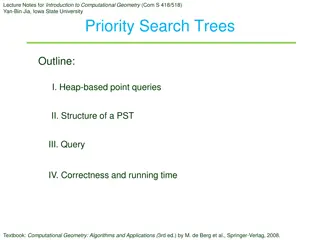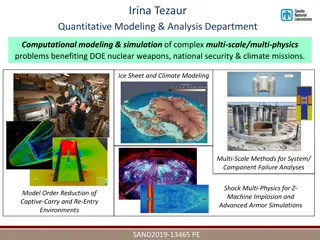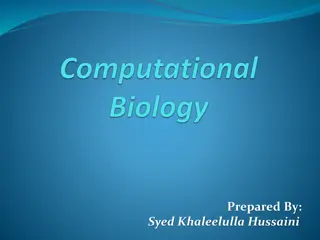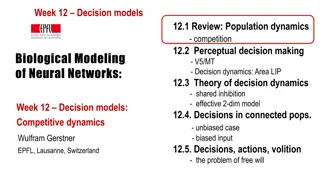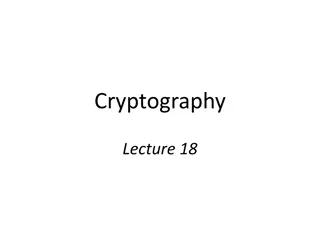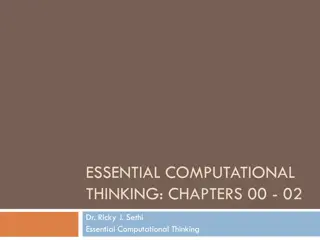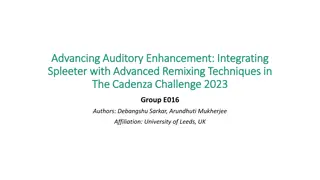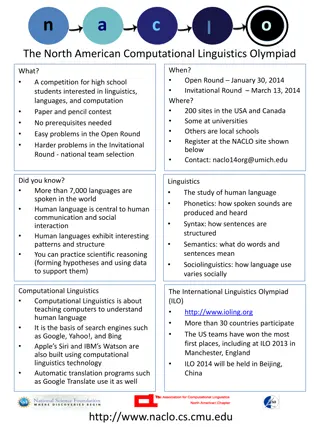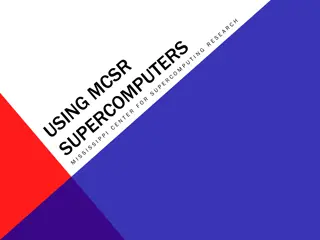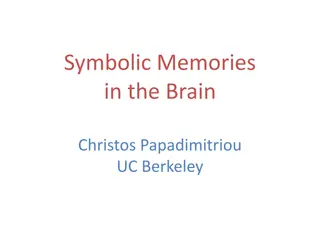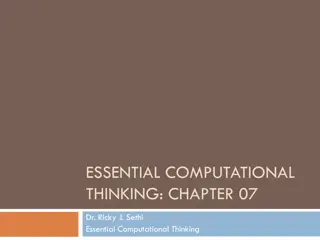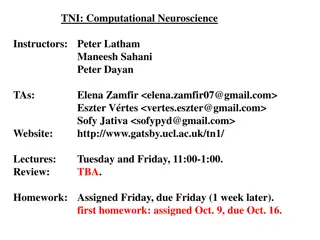Perceptual Learning - A Computational Perspective
Perceptual learning is a fascinating topic exploring how our perceptions improve with training. This computational perspective delves into the probabilistic nature of perception, inference, and the influence of prior knowledge. Hypotheses suggest attentional weighting, stimulus imprinting, perceptual adaptation, and unitization play crucial roles in perceptual improvement. Research in visual perception shows that discriminative features, detectors specialized for stimuli, and development of differentiated object representations contribute to enhancing perceptual discrimination. Practice indeed makes perfect in this field, as evidenced by perceptual abilities improving with training.
Download Presentation

Please find below an Image/Link to download the presentation.
The content on the website is provided AS IS for your information and personal use only. It may not be sold, licensed, or shared on other websites without obtaining consent from the author.If you encounter any issues during the download, it is possible that the publisher has removed the file from their server.
You are allowed to download the files provided on this website for personal or commercial use, subject to the condition that they are used lawfully. All files are the property of their respective owners.
The content on the website is provided AS IS for your information and personal use only. It may not be sold, licensed, or shared on other websites without obtaining consent from the author.
E N D
Presentation Transcript
Perceptual learning: a computational perspective CS786 3rdMarch 2022
Course logistics I have extended the Assignment 2 deadline to Mar 7 11:59:59PM Please don t ask me to extend it further Many people have still not sent in their research paper topics Please do so immediately I will discuss topics shared already with me in our first in-person discussion hour, scheduled for tomorrow at 1830 in CGS classroom
Absolute Thresholds Psychometric function demonstrating the probabilistic (statistical) nature of the threshold
Perception as inference Want to know , get to see
Can perceptual ability improve? Classic psychophysics imagined perception to be governed by absolute limits Signal detection theory was developed to measure these limits Visual perception research shows Perception strongly influenced by prior knowledge Question: how does this influence work? Evidence for perceptual learning presents some hypotheses
Perceptual learning Perceptual discrimination improves with training (Guggenmos, Wilbertz, Hebart & Sterzer, 2016)
Practice makes perfect https://www.youtube.com/watch?v=Qzhs1Z8 Rwnk
Hypotheses Attentional weighting Observers learn to attend to discriminative features of stimuli Stimulus imprinting Detectors developed that are specialized for stimuli Differentiation Perceptual adaptation by the development of increasingly differentiated object representations Unitization Development of sensory units that are triggered when a complex configuration occurs
Hypotheses Attentional weighting Observers learn to attend to discriminative features of stimuli Stimulus imprinting Detectors developed that are specialized for stimuli Differentiation Perceptual adaptation by the development of increasingly differentiated object representations Unitization Development of sensory units that are triggered when a complex configuration occurs
Perceptual learning as improved decision-making (Gold & Ding, 2013)
The dataset Recorded spiking response of neurons in monkey LIP cortex Neurons responsive to different motion directions Measured behavioral and neural data across multiple sessions (e.g. 165 sessions over 645 days for monkey C) Lapse rate
